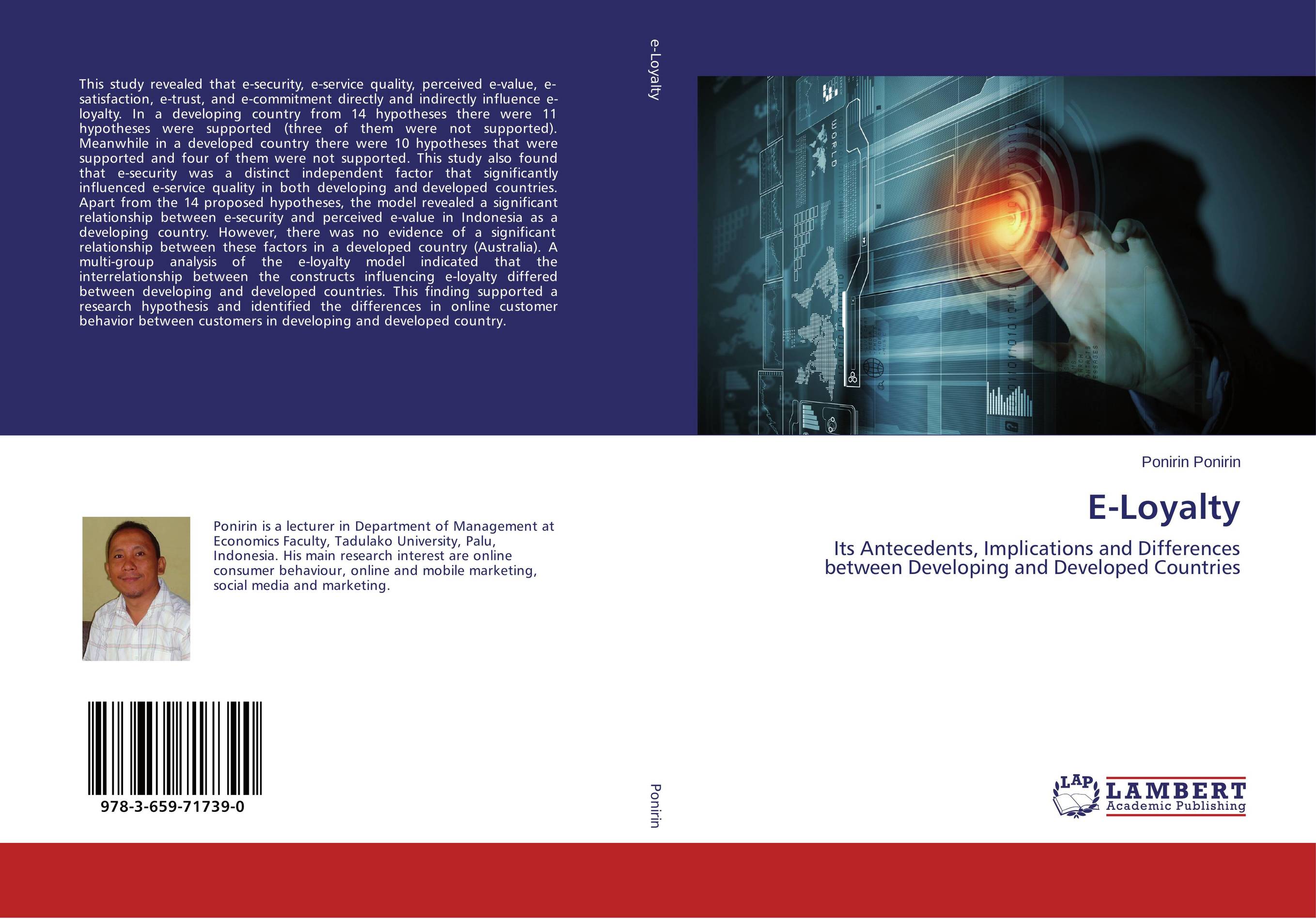| Поиск по каталогу |
|
(строгое соответствие)
|
- Профессиональная
- Научно-популярная
- Художественная
- Публицистика
- Детская
- Искусство
- Хобби, семья, дом
- Спорт
- Путеводители
- Блокноты, тетради, открытки
E-Loyalty. Its Antecedents, Implications and Differences between Developing and Developed Countries

В наличии
| Местонахождение: Алматы | Состояние экземпляра: новый |

Бумажная
версия
версия
Автор: Ponirin Ponirin
ISBN: 9783659717390
Год издания: 2015
Формат книги: 60×90/16 (145×215 мм)
Количество страниц: 324
Издательство: LAP LAMBERT Academic Publishing
Цена: 55817 тг
Положить в корзину
Позиции в рубрикаторе
Сферы деятельности:Код товара: 147766
| Способы доставки в город Алматы * комплектация (срок до отгрузки) не более 2 рабочих дней |
| Самовывоз из города Алматы (пункты самовывоза партнёра CDEK) |
| Курьерская доставка CDEK из города Москва |
| Доставка Почтой России из города Москва |
Аннотация: This study revealed that e-security, e-service quality, perceived e-value, e-satisfaction, e-trust, and e-commitment directly and indirectly influence e-loyalty. In a developing country from 14 hypotheses there were 11 hypotheses were supported (three of them were not supported). Meanwhile in a developed country there were 10 hypotheses that were supported and four of them were not supported. This study also found that e-security was a distinct independent factor that significantly influenced e-service quality in both developing and developed countries. Apart from the 14 proposed hypotheses, the model revealed a significant relationship between e-security and perceived e-value in Indonesia as a developing country. However, there was no evidence of a significant relationship between these factors in a developed country (Australia). A multi-group analysis of the e-loyalty model indicated that the interrelationship between the constructs influencing e-loyalty differed between developing and developed countries. This finding supported a research hypothesis and identified the differences in online customer behavior between customers in developing and developed country.
Ключевые слова: e-Loyalty, e-retailing, E-Service Quality, e-Perceived Value



